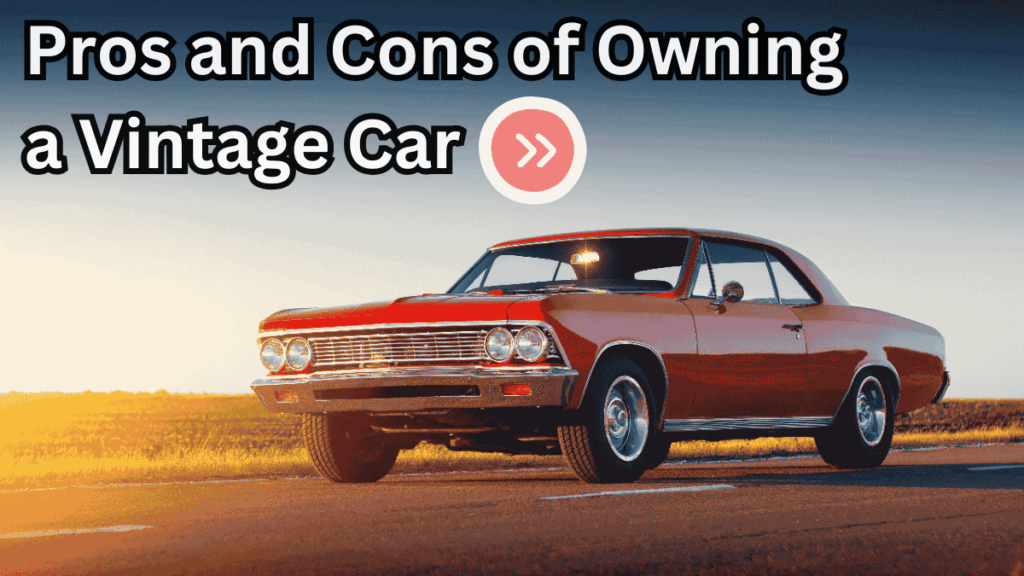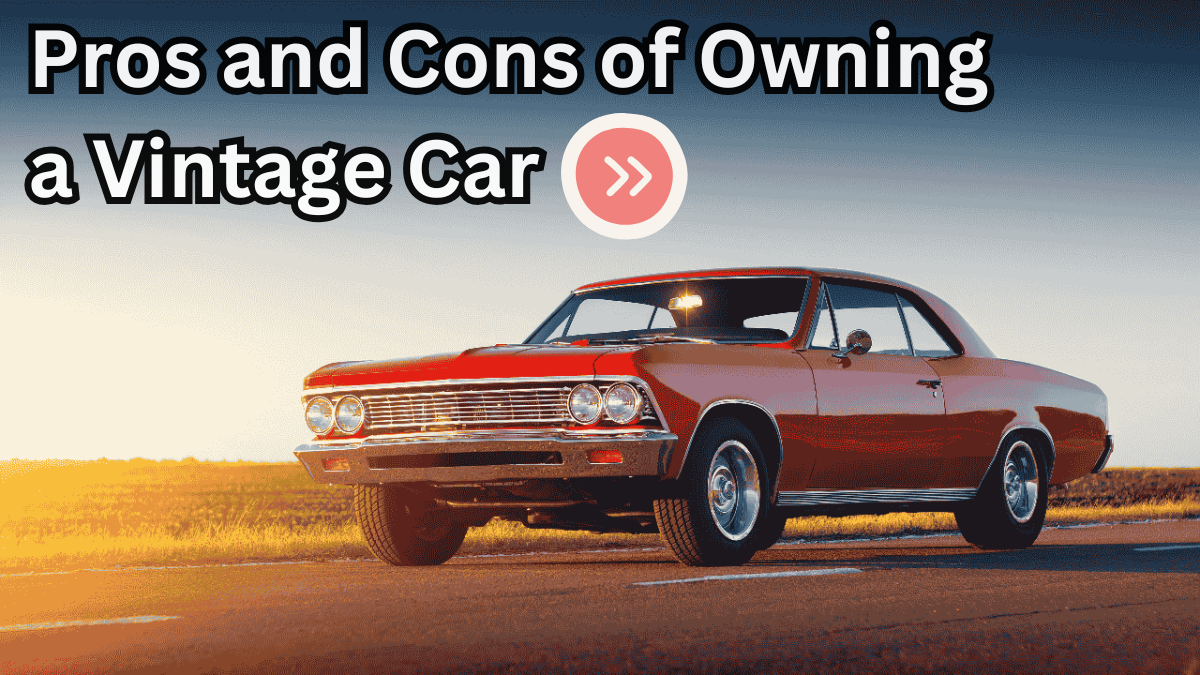Owning a vintage car isn’t just about having a means of transportation — it’s about embracing a piece of history, culture, and artistry on wheels. But before you dive into the exciting world of classic car ownership, it’s essential to understand both the joys and hurdles involved.
Whether you’re a seasoned collector or a newbie seeking collector advice, here’s an honest look at the pros and cons of owning a vintage car, highlighting common classic car ownership challenges along the way.

Table of Contents
Why People Love Owning Vintage Cars

The Pros of Owning a Vintage Car
Vintage cars carry an undeniable charm and uniqueness that modern vehicles just can’t match. Here’s what makes classic car ownership so rewarding:
-
Timeless Style: Vintage cars often boast iconic designs and craftsmanship that turn heads everywhere.
-
Investment Potential: Many vintage cars appreciate in value over time, making them a smart investment.
-
Community and Events: Joining vintage car clubs and attending rallies fosters friendships and networking.
-
Sense of Accomplishment: Restoring or maintaining a classic car provides a great sense of pride and satisfaction.
-
Unique Driving Experience: The feel, sound, and mechanics of a vintage car offer a nostalgic driving pleasure.
The Challenges Behind the Beauty
The Cons of Owning a Vintage Car
Owning a vintage car is not without its pitfalls. Many owners face obstacles that can test their patience and resources. Here are some common classic car ownership challenges to keep in mind:
-
Maintenance and Repairs: Parts can be rare, expensive, and hard to find; specialized skills may be required.
-
High Upkeep Costs: Insurance, storage, and upkeep can quickly add up.
-
Limited Practicality: Vintage cars may lack modern safety features and fuel efficiency.
-
Reliability Issues: Older cars can be temperamental and less reliable for everyday use.
-
Storage Requirements: Proper storage to prevent rust and deterioration is necessary, often requiring a climate-controlled environment.
Quick Comparison: Vintage Car Ownership – Pros vs Cons
| Pros | Cons |
|---|---|
| Timeless, unique style | Expensive maintenance & repairs |
| Potentially good investment | Hard to find replacement parts |
| Belonging to a passionate community | Limited practicality & daily use |
| Pride in restoration & ownership | Requires proper storage & care |
| Unique, nostalgic driving feel | Can be less reliable |
Expert Collector Advice: Tips for Potential Vintage Car Owners
If you’re considering stepping into classic car ownership, here’s some practical advice to smooth the journey:
-
Research Thoroughly: Understand the make, model, and specific maintenance needs before buying.
-
Inspect Carefully: Always get a professional pre-purchase inspection to uncover hidden issues.
-
Join Clubs: Connect with vintage car clubs to learn from experienced owners.
-
Budget Realistically: Factor in restoration, maintenance, insurance, and storage costs.
-
Invest in Storage: A clean, dry garage or climate-controlled storage protects your investment.
-
Keep Documentation: Maintain detailed records of repairs and history to increase your car’s value.
Final Thoughts:
Owning a vintage car is a rewarding experience full of nostalgia, pride, and unique joys — but it also demands commitment, patience, and resources. By understanding the pros and cons of owning a vintage car and acknowledging the classic car ownership challenges, you can decide if this passionate hobby fits your lifestyle.
Frequently Asked Questions (FAQs)
Q1: What are the biggest challenges in owning a vintage car?
A: The main challenges include sourcing rare parts, higher maintenance costs, and ensuring proper storage to prevent damage.
Q2: Can owning a vintage car be a good investment?
A: Yes, many vintage cars appreciate over time, especially if well-maintained and kept in original condition.
Q3: How can I get started with vintage car ownership as a beginner?
A: Start by researching models, joining classic car clubs, and seeking collector advice from experienced owners.
Q4: Are vintage cars practical for daily driving?
A: Generally, vintage cars are less reliable and lack modern safety features, so they’re better suited for occasional use rather than daily commuting.
Click here to learn more







